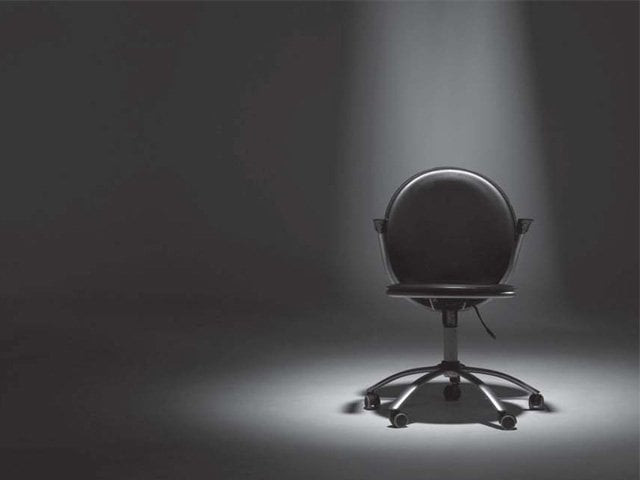Yes, we can: Unsealing the glass ceiling at work with women
Top women professionals speak about how age-old prejudices can be undone.

Top women professionals speak about how age-old prejudices can be undone. PHOTO: FILE
Over a few weeks, she realised that she was expected to serve as a personal assistant to her line manager, who expected her to set his appointments, divert his calls, arrange meetings for him and book tables for his lunches. She resigned a few weeks later. She now works at Nestlé Pakistan- one of the top 10 employers in Pakistan ranked by a recruitment website recently- and says she is happy to be at a company where she sees no glass ceiling for women employees.
While the situation for women at workplace seems to be getting better in Pakistan over the years, the World Economic Forum 2012 report on gender gap shocking ranks Pakistan at 134th position in the list of countries with minimum gender gap. The Forum surveyed gender gap in 135 countries. And this had become worse since 2010 and 2011, when Pakistan ranked 132nd and 133rd, respectively. Iceland topped the 2012 list with minimum gender gap ratio.
Nonetheless, Nestlé’s Business Manager (culinary) Samra Maqbool is hopeful about the future of working women in Pakistan. While she says that men still make up most part of the workforce, she is happy to see that more women are now joining in and the ratio has increased over the last few years.
“In over 12 years of my experience with Nestle to be precise, I have seen the company subtly but progressively evolve in terms of offering a work environment that is attractive for women so they can be integrated in the work force with the flexibility to combine work and family. There are certainly more women now than when I joined.”
Maqbool joined Nestle as a fresh graduate 12 years ago and now holds one of the top positions in Nestle Pakistan. She believes this is an on-going journey, and there are always opportunities to proactively lead this integration.
“Women are becoming increasingly ambitious and they join a work place to excel, so salaries are not always the deciding factor for them while joining a company,” she says.
Talking specifically about her company’s policy on hiring and giving raises, she says all recruitment is based purely on merit supported with a strong pay-for-performance culture to ensure that all employees are paid fairly.
As part of Nestlé philosophy there are no quotas, however, there are continued efforts that help encourage diversity in its teams - like international dual career management network, day care centre, pick and drop facilities. She talks about certain departments, where there are more women than men, “such as the communication function”.
To prioritise gender balance at Nestle, she says, the global best practice is to at least have one woman as part of succession planning for key positions. She says there is a need to integrate more women into the talent pool where they can be part of the decision making team.
Maqbool, who is the only woman member of the Nestle in the Market Committee (for Pakistan) that comprises of several top officials, also heads an intra-Nestle female forum where female employees from all sites, nationally, share their experiences and seek advice.
She claims that Nestle does not have a glass ceiling for women and gives example of Uzma Butt, the first woman head of Human Resources in Pakistan who was transferred to the head office in Switzerland. It took Butt less than 10 years to become the HR head from her entry position.
Maqbool explains that the company has an anti-harassment policy under which there is a committee where female employees can file their complaints, including those regarding harassment. The committee then takes actions according to the company’s policy, she adds.
‘Developing the woman of tomorrow’
Like Nestle Pakistan, Telenor Pakistan also offers a day care centre and pick-and-drop facilities to its female employees. But what makes Telenor Pakistan the best place for women to work? Corporate Communications and Responsibility Director Atifa Asghar has the answer.
She says females comprise 18 per cent of the entire workforce. In an attempt to increase this percentage, she says, the company has been consistently working towards gender diversity to promote female workforce.
Telenor Pakistan topped the list of best employers, both for female and male employees, prepared by the same website that ranked Nestle Pakistan at the fifth position.
Recently, Asghar said, Telenor Pakistan launched a programme titled Developing Women of Tomorrow that aims at raising awareness of women’s issues and encouraging female applicants to apply for positions at the company.
While deciding over salaries and raises, she said, the company followed merit regardless of race, language, gender and any other discrimination. As far as benefits were concerned, she said, male employees enjoyed the same benefits across all tiers of management as their counterparts.
She says she feels proud to see that women are part of every department in the company.
“We have women working in technology, finance, marketing, human resource and even in trade marketing. So there is nothing that a woman worker can’t do.”
Currently, the highest post that is currently held by a female in Telenor Pakistan is that of a director. Asghar says there are several female directors across the country and several females occupy mid to high level management positions across the country.
She reveals that there have been no harassment complaints since the inception of the company in Pakistan some eight years ago. The company, however, has a compliance department to look after all sorts of employees’ complaints.
First woman director general
Kozue Kay Nagata, the Pakistan director for United Nations Educational, Scientific and Cultural Organisation (UNESCO), is one of the few women to hold a high position at United Nations agencies.
Having recently joined the UNESCO Pakistan office, Nagata says around 15 per cent of the employees at her office are women. Globally, she says, women make up 40-45 per cent of the workforce. She is proud of the fact that UNESCO is the only UN organisation to have the first woman Director General Irina Bokova, whose post she says is equal to that of UN Secretary General Ban Ki-moon. Bokova defeated nine candidates at the election in Paris some three years ago. She now heads some 3,500 employees globally. A director general is the biggest post an employee can have at UN.
Nagata explains that UNESCO has a twin-track approach to reduce gender gap. She says while recruitments are entirely merit-based, priority is given to women in training programmes and are a focus of mainstream gender programmes.
Women are encouraged to apply, she says, and in cases where the organisation has to choose from equally capable male and female applicants, she adds, a female applicant is more likely to be selected.
She explains how the UN Ethic Office in Paris works.
“The office deals with employees’ complaints and is accessible to employees across the world. Complaints, including those related to gender discrimination or harassment, are filed there and the office directly contacts the complainant. ”
Gender equality ‘far from achieved’
While ‘top employers’ explain and feel proud about their women-friendly policies, the fact that Pakistan ranks the second last in the 135 countries with gender gap (World Economic Forum 2012), gender equality at workplace seems far from achieved.
Dr Fouzia Saeed wrote about workplace harassment and glass ceiling for women employees in her book Working with the Sharks (2012). For her positive attitude from senior management is a prerequisite in meeting challenges faced by women.
She says she has seen attitudes of men changing as they see women go high in their careers.
“Managers are helpful as long as women are in lower jobs. Once the women get into competition for senior jobs, their senior strata does not like it. That is when they try to pull the woman down through whatever way.”
*Name has been changed to protect identity



















COMMENTS
Comments are moderated and generally will be posted if they are on-topic and not abusive.
For more information, please see our Comments FAQ